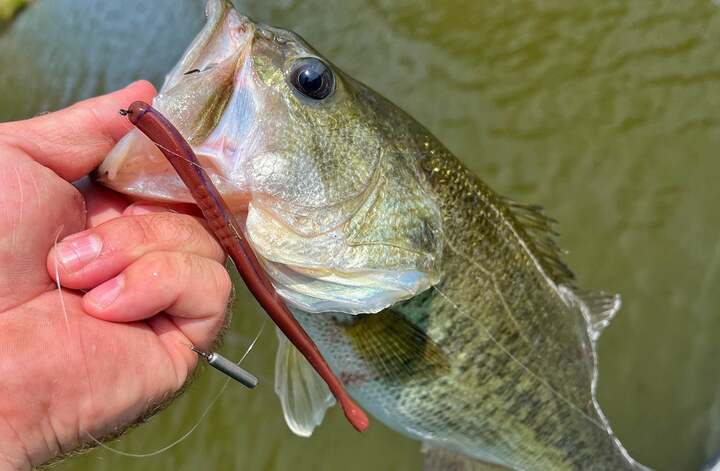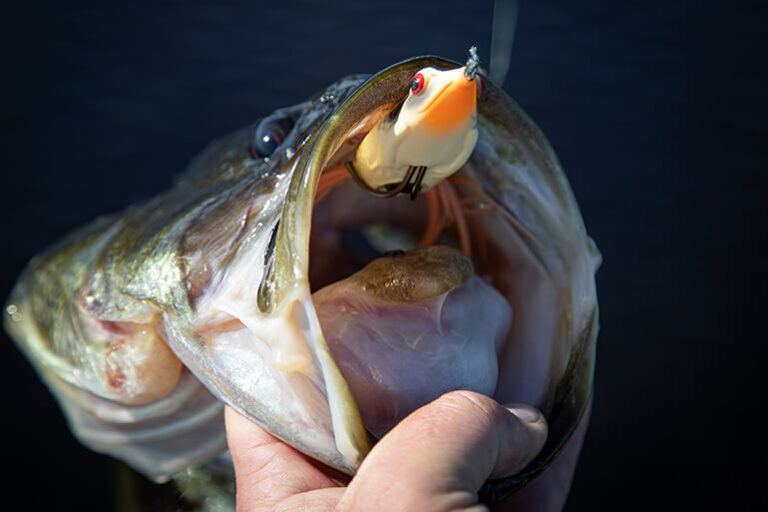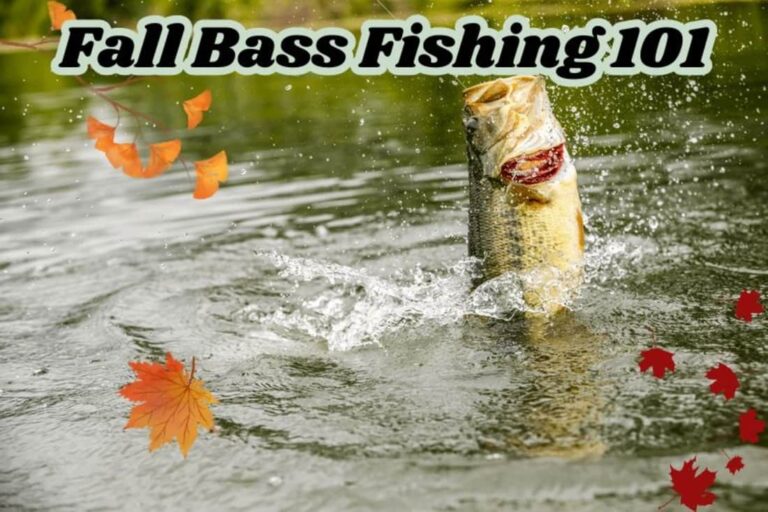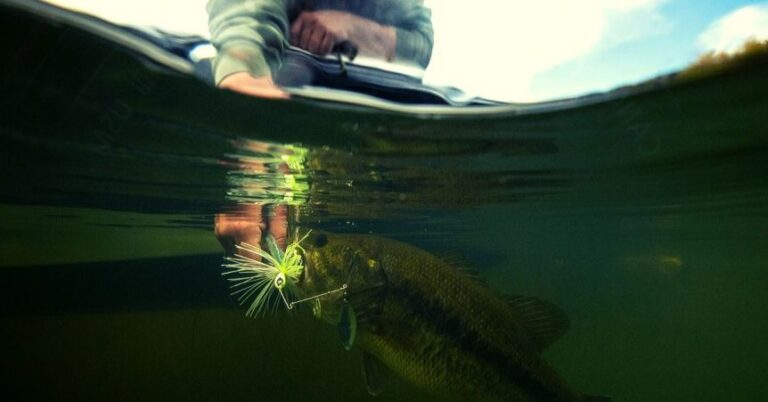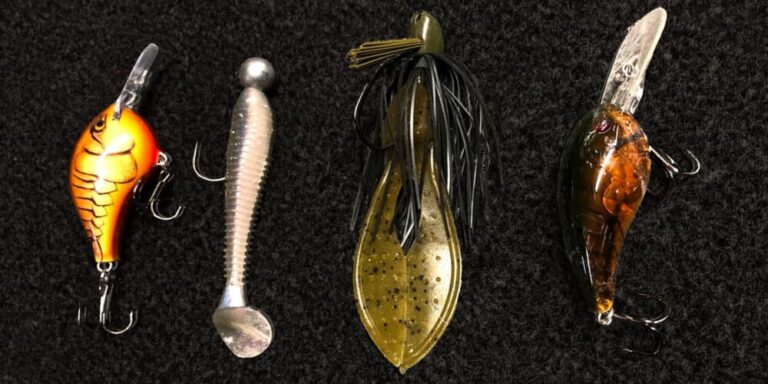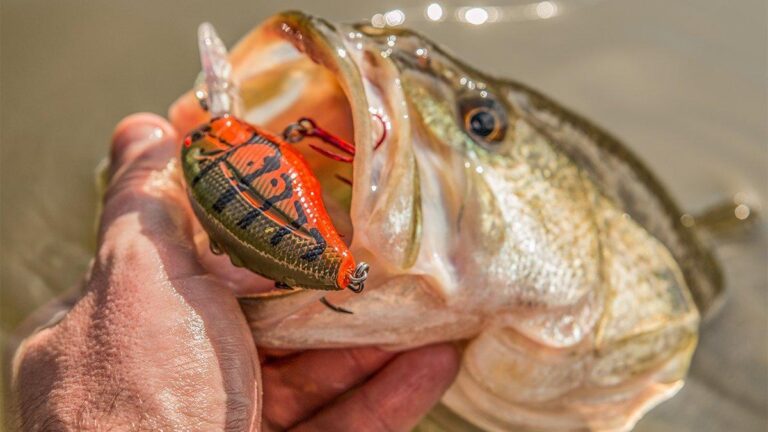Bass Fishing in the Rain
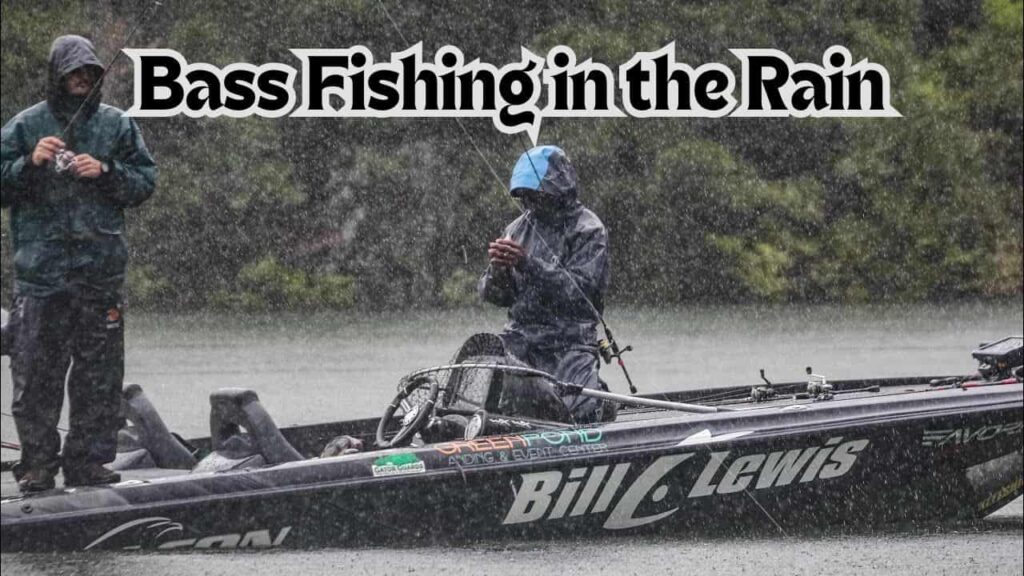
When I was a kid, my absolute favorite time to go fishing was while it was raining.
The temperatures cooled off and there was just something special about the way the rain droplets looked on the water’s surface.
But even more than the feel and view, I loved bass fishing in the rain, and the rain always seemed to get me more bites.
Effects of the Rain on Bass Fishing
Bass Are Aggressive in Light-Medium Rain
For normal rainy conditions, bass are going to become more aggressive.
One reason for this is that the rain causes lots of commotion. Fish have a hard time hearing, feeling, and seeing during the rain.
And bass use this to their advantage. They know that baitfish and other forage are disoriented, so they will aggressively hunt the down as easy prey.
Bass are Lethargic in Very Heavy Rain
Now when the rain gets very intense, bass will actually shut down almost entirely.
During a huge storm or downpour, the bass are just too overwhelmed and on edge to worry about eating.
They will typically find a piece of cover and hold tightly to it until the rain eases up a bit.
So generally, heavy rain is not the best weather for bass fishing.
More Oxygen in the Water
As the rain falls into the eater, it carries with it a bit of oxygen. The oxygen enriches the water and gives the bass a jolt of energy.
This is another reason that bass will be more aggressive during the rain, and will usually use that extra energy to hunt.
Water Gets Dirty
The rain will significantly dirty up the water and reduce the its clarity.
The rain washing off the banks and through creeks carries dirt, pollen, and other debris into the water, making it much more murky.
Unless your lake or pond is already super muddy, this is typically a positive for fishing.
Bass actually prefer a bit of stain in the water as it helps them sneak up on prey without being seen.
Low Visibility
Not only is the water itself made darker, but the rain greatly reduces the amount of light entering the water.
Of course, when it is raining, the sun is not shining. The sky is covered in thick clouds which greatly reduce the amount of light that gets through and enters the water.
Additionally, the splashing and rippling of the rain on the water’s surface scatter this light even more and further reduce underwater visibility.
Bass Spread Out
Under all these conditions, bass will drift off of cover, raise up off the bottom, and hunt down prey in open water.
They will spread out and stay on the move until they find bait to eat.
This can make it difficult to find large numbers of bass, but also makes it easy to cover lots of water and consistently hook on.
Focus On Power Fishing
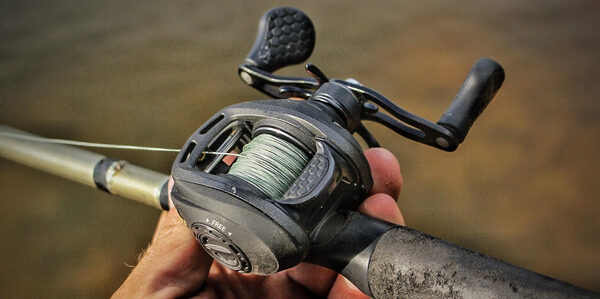
Every single one of the effects we just discussed (except the very heavy rain scenario) point our fishing approach in the same direction.
Power, power, power. Bass need bigger, louder, flashier, and greater vibrating lures to effectively hunt them down.
With all 6 senses of the bass negatively effected by the rain, you need to make it easy on them by power fishing with aggressive lures.
And since bass are spread out all over the lake, it is very important that you cover lots of water and fish efficiently so that you aren’t just wasting your time.
Where to Find Bass in the Rain
There are two primary places to locate bass in the rain. First, as we already discussed, is open water.
But to make this a bit more specific, I narrow it down to shallow, open water.
Bass seem to prefer water under 10 feet deep during the rain. Anything deeper than that, and they risk making themselves vulnerable by essentially swimming around in the middle of nowhere with reduced senses.
The second place is feeder creeks. When it is raining, the feeder creeks bring in tons of new, oxygenated water as well as baitfish, bugs, amphibians, and other easy forage.
The bass post up at the mouth of these creeks and wait for the food to come to them.
If you are fishing big lakes, these are easy to find on your map and will give you lots of water to fish.
But if you are fishing small ponds, drainage pipes and small inlets serve the same purpose, just on a smaller scale.
Best Lures for Bass Fishing in the Rain
1. Spinnerbait
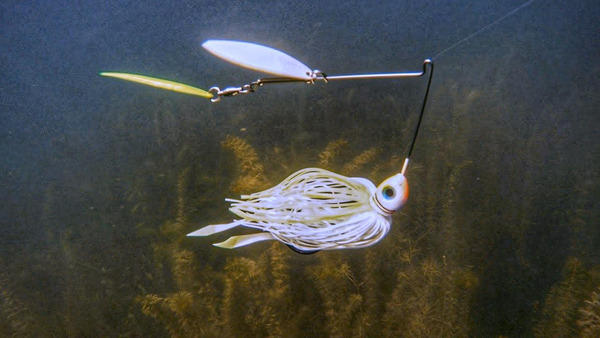
Without a doubt, the spinnerbait is my number 1 lure for fishing in the rain.
I has the flash, the vibration, the profile, and most important, the results.
I can tell you without hesitation that I have caught more bass in the rain on a spinnerbait than any other lure.
Just thinking of those flashing, thumping blades coming through the water while rain drops scatter across the surface makes me wish it was raining right now so I could get out there.
And there is just something about skirted baits that bass seem to love.
One theory is the secondary motion that they give the bait, but whatever the reason, bass love skirted baits.
You just can’t beat a spinnerbait when it is raining.
2. Buzzbait
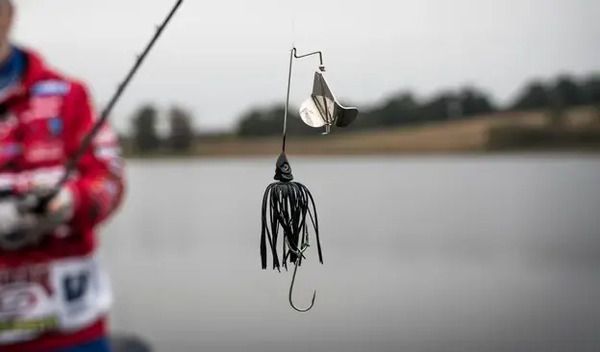
Another bait with a similar profile, is the buzzbait. The two key differences are that the buzzbait is a topwater lure, and the buzzbait uses sound much more than flash.
When fishing shallow flats or bank lines, a buzzbait is a terrific option. The rain is very loud.
But the buzzbait is even louder. The splashing, squeaking blade causes enough commotion to draw bass in, and the skirted body of the lure hangs just below the surface, giving the bass a very easy target.
3. Glide Bait
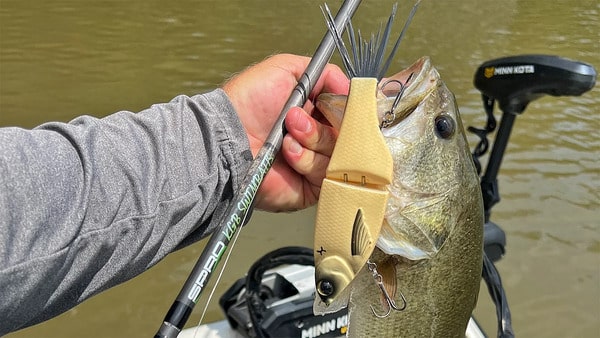
In my eyes, there is no better time to throw a glide bait than when it is raining.
The glide bait perfectly imitates a lost, disoriented baitfish that is almost begging to be eaten.
And in the rain, this is exactly what bass are hunting for. Although glide baits don’t have tons of sound, flash, or vibration, they still have tons of drawing power.
This is because they are very big baits. And as the big glide bait moves through the water, it displaces tons of water around it.
Bass can feel this and still find the bait, even in the rain. If you are bass fishing in the rain and you want to catch the biggest bass possible, tie on a glide bait.
4. Jig
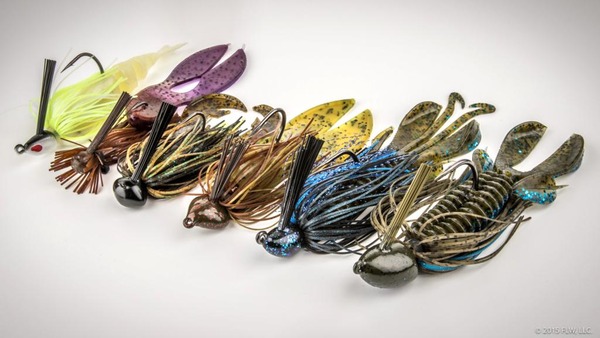
I say “jig” intentionally, to include multiple types of jigs.
In very clear water (it will muddy up a bit in the rain, but is still clear compared to most lakes), a swim jig is one of the best lures out there.
You don’t need quite as much flash and vibration, and the reduced visibility makes the swim jig look even more natural.
But no matter what the conditions, there will still be some bass that hold tightly to cover. So for those bass, a flipping or arkie style jig works very well.
The jig is a bit broad of a term, but it allows you to adapt and maximize your success for your specific body of water.
5. Neko Rig
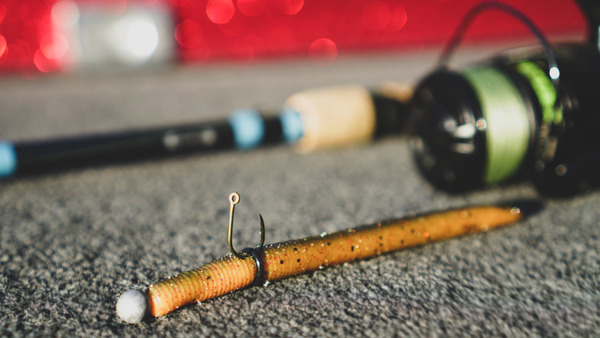
Now, the Neko rig is certainly not a power fishing lure. It pretty much defies all the logic we just established about effective lures for fishing the rain.
But sometimes, that’s just how fishing is. The conditions might be perfect for power fishing, but for whatever reason, the bass just aren’t in the mood.
In these times, you need to go finesse. And the Neko rig is my favorite finesse setup for the rain because it has a bit of weight to it.
The nail weight gets the bait down quickly and allows you to keep bottom contact.
This is very useful because when it is raining, there is usually some wind and chop on the water as well.
So the added weight really helps to keep control and feel of your bait through the wind.
Lure Colors for Fishing in the Rain
Your lure colors are going to be the same as on an overcast day. To keep it rally simple, use either very bright colors or very dark colors.
The bright colors reflect all of the limited light that hits them, making the more visible.
And the black reflects no light, making a clear and visible silhouette. To be honest, black and white are really the only colors you need.
Also Read: Bass Fishing AFTER the Rain
Reeling this In
Fishing in the rain has always held a special allure, combining the cool, serene atmosphere with the excitement of increased bass activity.
Rainy conditions can significantly impact bass behavior, making them more aggressive during light to medium rainfall and more lethargic during heavy downpours.
The rain oxygenates the water, providing bass with energy to hunt, while also reducing visibility and making the water murkier, which bass use to their advantage.
Understanding these dynamics and adapting your strategy accordingly will enhance your chances of reeling in more bass during those rainy days.

